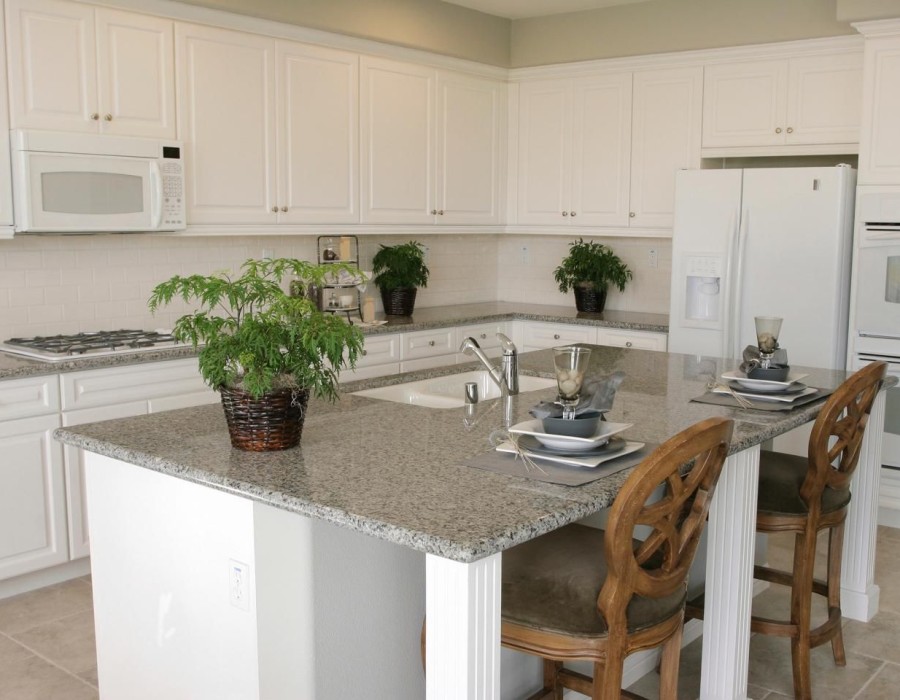Granite countertops are not only durable but also add elegance and value to your home. However, selecting the right color can significantly impact the overall aesthetics of your space. Here are seven essential factors to consider when choosing a granite countertop color:
Granite Countertop Color: A Key Design Element
Selecting the perfect granite countertop color is crucial as it serves as a focal point in your kitchen or bathroom. The color sets the tone for the entire space, influencing the ambiance and visual appeal.
Granite comes in a wide range of colors, from classic neutrals like white and gray to bold hues such as black and blue. Consider the overall style and color scheme of your room when making your selection.
Lighting Conditions
The lighting in your kitchen or bathroom can significantly impact how granite countertops appear. Natural light enhances the depth and veining of granite, while artificial lighting can sometimes alter its appearance.
Before finalizing your granite countertop color, observe how different shades look under various lighting conditions throughout the day. This ensures that you choose a color that complements your space regardless of lighting changes.
Kitchen or Bathroom Style
The style of your kitchen or bathroom should influence your choice of granite countertop color. For traditional spaces, classic colors like beige or brown work well, while modern kitchens may benefit from sleek, black granite countertops.
Consider the existing decor and fixtures in your space and opt for a granite color that harmonizes with the overall design aesthetic.
Personal Preference and Lifestyle
Your personal preferences and lifestyle should also play a significant role in selecting a granite countertop color. Consider factors such as maintenance requirements and how often you use the space.
If you have a busy household with children or pets, you may want to choose a granite color that hides stains and imperfections. Alternatively, if you prefer a bold statement, opt for a unique granite color that reflects your personality.
Durability and Maintenance
Granite countertops are known for their durability and resistance to heat, scratches, and stains. However, certain colors may require more maintenance than others.
Darker granite colors tend to be denser and less porous, making them more resistant to staining and etching. Lighter colors, on the other hand, may require more frequent sealing to maintain their pristine appearance.
Resale Value
If you're considering selling your home in the future, the choice of granite countertop color can impact its resale value. Neutral colors like white, gray, and beige are timeless and appeal to a wide range of buyers.
While bold or unconventional colors may suit your personal taste, they may not appeal to potential buyers. Opting for a classic granite countertop color ensures broad market appeal and enhances your home's resale value.
Budget Considerations
Finally, consider your budget when choosing a granite countertop color. While granite is an investment that adds value to your home, certain colors may be more expensive than others due to rarity or popularity.
Factor in the cost of the granite slab, fabrication, and installation when making your decision. Be sure to explore different color options within your budget to find the perfect balance between aesthetics and affordability.
FAQs (Frequently Asked Questions)
1. Can I change the color of my granite countertops?
Yes, while granite countertops are durable and long-lasting, you can change their color through a process called resurfacing or refinishing. However, this process requires professional expertise and may not be suitable for all granite colors.
2. Are lighter or darker granite colors better for high-traffic kitchens?
Darker granite colors tend to conceal stains and imperfections better than lighter colors, making them ideal for high-traffic kitchens. However, proper sealing and maintenance are essential regardless of the color choice.
3. How often should I seal my granite countertops?
It is recommended to seal granite countertops every one to two years to maintain their luster and protect them from stains. However, the frequency may vary depending on the color and porosity of the granite.
4. Can I use harsh chemicals to clean my granite countertops?
No, harsh chemicals can damage the sealant and potentially etch the surface of your granite countertops. Instead, use a mild dish soap and warm water solution or a granite-specific cleaner for routine cleaning.
5. Do granite countertops increase home value?
Yes, granite countertops are highly desirable among homebuyers and can increase the resale value of your home. Opting for classic granite colors enhances market appeal and adds to the overall perceived value of your property.
6. How do I know which granite color is right for my space?
Consider factors such as your room's style, lighting conditions, personal preferences, and maintenance requirements when choosing a granite countertop color. Requesting samples and consulting with a design professional can also help you make an informed decision.
Conclusion
Choosing the perfect granite countertop color involves careful consideration of various factors, including your personal preferences, lifestyle, and budget. By following these essential guidelines and considering the FAQs provided, you can confidently select a granite color that enhances your space's beauty and functionality.
Remember to prioritize durability, aesthetics, and resale value when making your decision, and don't hesitate to seek guidance from design experts or countertop professionals if needed.






Comments